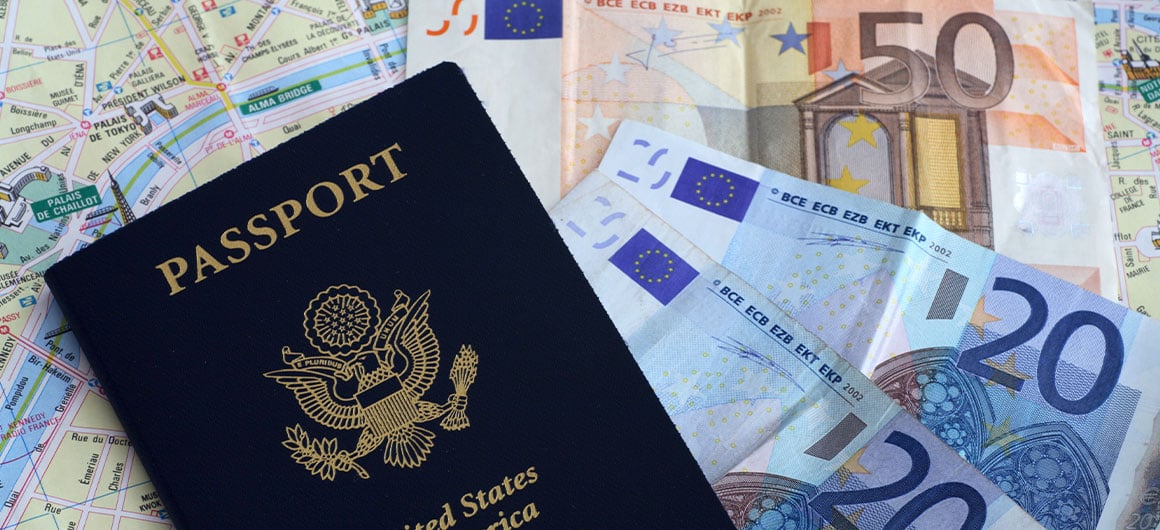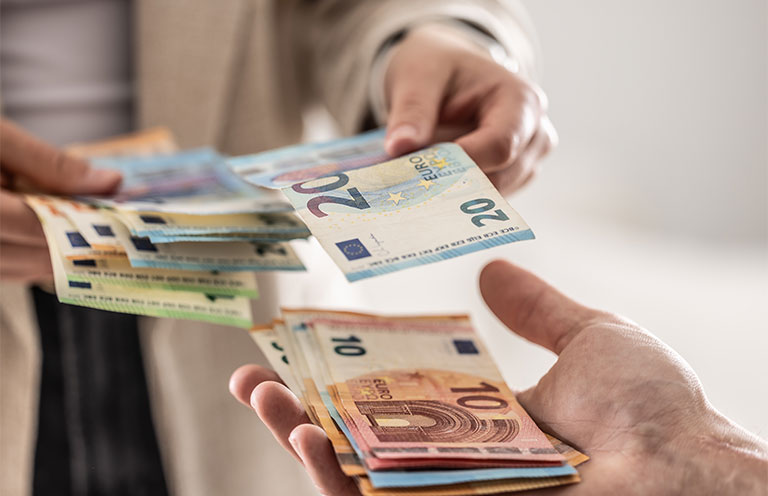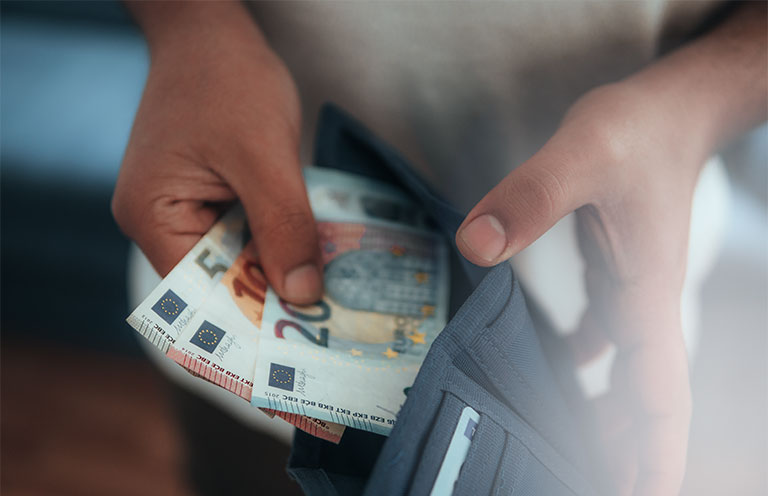

When setting out on an international trip, you can make your journey go much more smoothly by having local currency in hand. While credit cards and digital payments are widely accepted in many parts of the world, you still may encounter plenty of situations in which cash is preferred—or even required. Keeping a mix of local currency and cards keeps you prepared for any scenario, including everything from making small purchases at markets to paying for taxis and tipping.

Are credit cards accepted in other countries?
In almost all countries, credit cards are accepted for at least some transactions. But many international destinations still operate on a largely cash-based economy. In rural areas, small towns, and even some big cities, local businesses may not accept credit cards or may impose surcharges for card transactions. Having foreign currency ensures you’re never stuck without a payment option, and that you don’t have to pay more than necessary.*
Do credit card issuers charge fees for use in other countries?
Relying solely on credit or debit cards while traveling can result in unexpected fees not only from local businesses but also by your credit card issuer. Many banks charge foreign transaction fees ranging from 1 percent to 3 percent per purchase. Additionally, ATM withdrawal fees can include both local bank charges and your home bank’s transaction fees. By carrying local currency, you sidestep these extra costs, keeping more money for experiences rather than fees.
In a digital world, why is cash still needed?
Even in an increasingly digital world, cash remains the preferred payment method for many small transactions. Whether grabbing a quick coffee, paying for street food, or tipping hotel staff, you can avoid unnecessary fees and delays by having local currency handy.
Moreover, in emergencies, having cash can be the difference between a minor inconvenience and a major headache. What if you lose your wallet? What if your credit card is damaged or declined? What if an ATM is out of service? What if your bank flags your overseas transactions and puts a hold on your card? Having foreign currency in hand ensures that you’re never left without access to funds when you need them most.

How much local currency should you have available?
A good benchmark is to be prepared with $100 of local currency per day.
Why get foreign currency at home instead of exchanging abroad?
One of the biggest financial mistakes travelers make is waiting until they arrive at their destination to exchange money. Airport exchange kiosks and foreign ATMs often charge high fees and offer poor conversion rates. By securing your foreign currency before departure, particularly through a reputable source such as AAA, you can lock in competitive rates and avoid the unpredictability of last-minute exchanges.
AAA makes the process simple, offering more than 80 foreign currencies at attractive rates. You can order online or visit a local AAA Store to pick up your currency, guaranteeing you have cash in hand before you even leave home. Plus, next-day shipping is available for orders placed before 3 p.m., so you won’t have to worry about eleventh-hour scrambling.
Avoid overpaying by having cash at the ready
Navigating foreign exchange rates can be confusing, especially when dealing with unfamiliar currencies. Prices may appear misleading, and calculating conversions mentally can be a hassle at best and wrong at worst. By securing your currency ahead of time, you remove any guesswork and avoid unwelcome surprises at checkout.
Another mistake that travelers often make is trying to avoid the situation by paying in US currency with their credit card at checkout. While some vendors offer this option, they’re often charging you highly unfavorable exchange rates for the privilege, and you’ll still be charged a foreign transaction fee by your bank, if your card is subject to this fee.

Prepare with a mix of payment options
While carrying foreign currency is essential to being a prepared traveler and avoiding fees, a balanced approach to spending abroad is best. Combining cash with a travel-friendly credit card ensures that you’re covered for every situation. Here’s how to spend most wisely:
- Use your credit card for larger purchases, such as hotels and car rentals, to take advantage of rewards and fraud protection.
- If needed, withdraw local currency in larger amounts less frequently to minimize ATM fees.
- Always opt to pay in local currency when using a card.
- Have a backup credit card in case your primary one is declined or lost.
- Enable transaction alerts on your card for added security while abroad.
Ready to travel like a pro? Visit your local AAA Store or AAA's Foreign Currency Exchange to secure your foreign cash today. After all, traveling should be about enjoying new experiences, not worrying about payment hurdles.
*Currency may be available in as little as one day, but may require additional days due to requested currency and amount.
